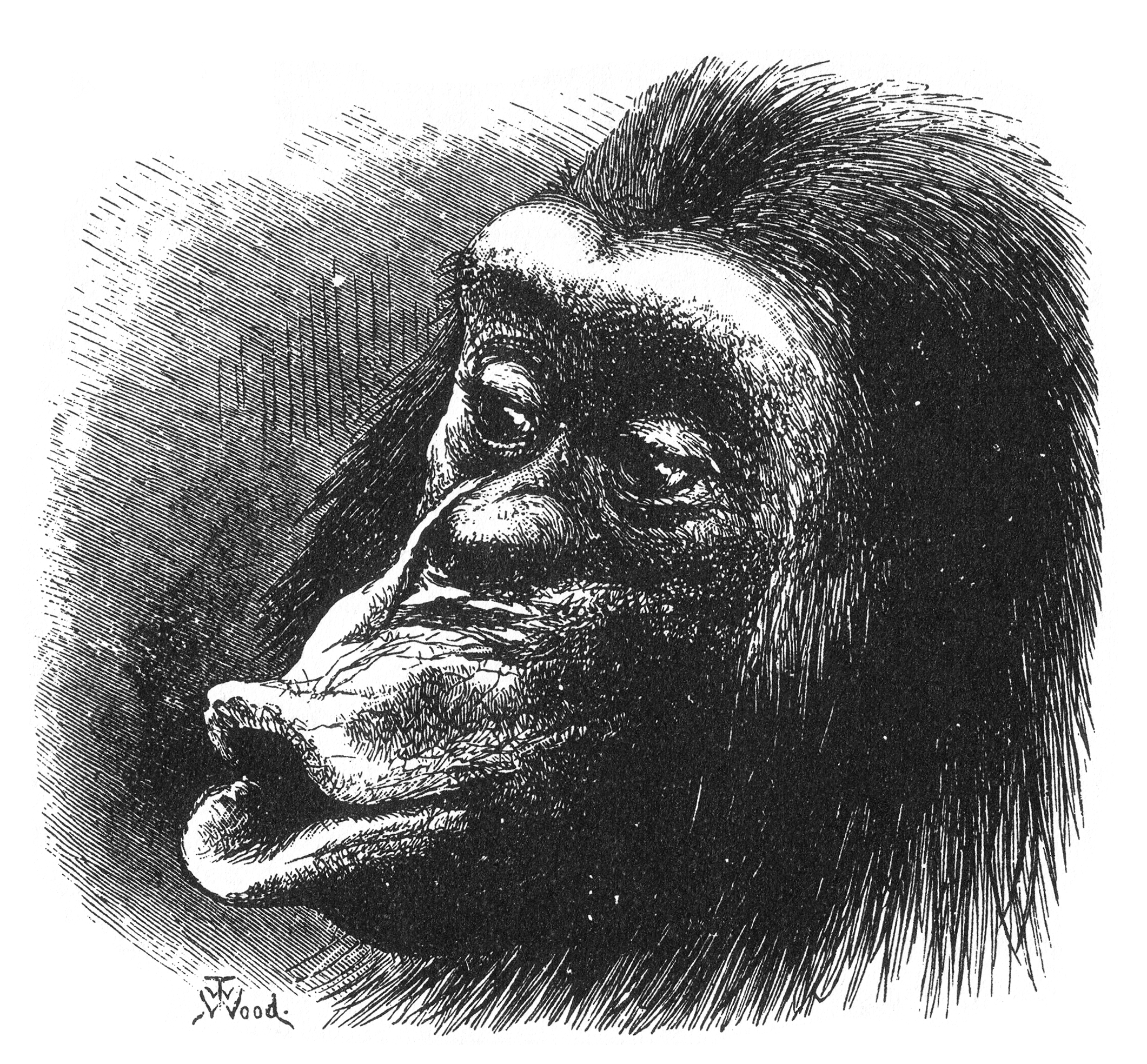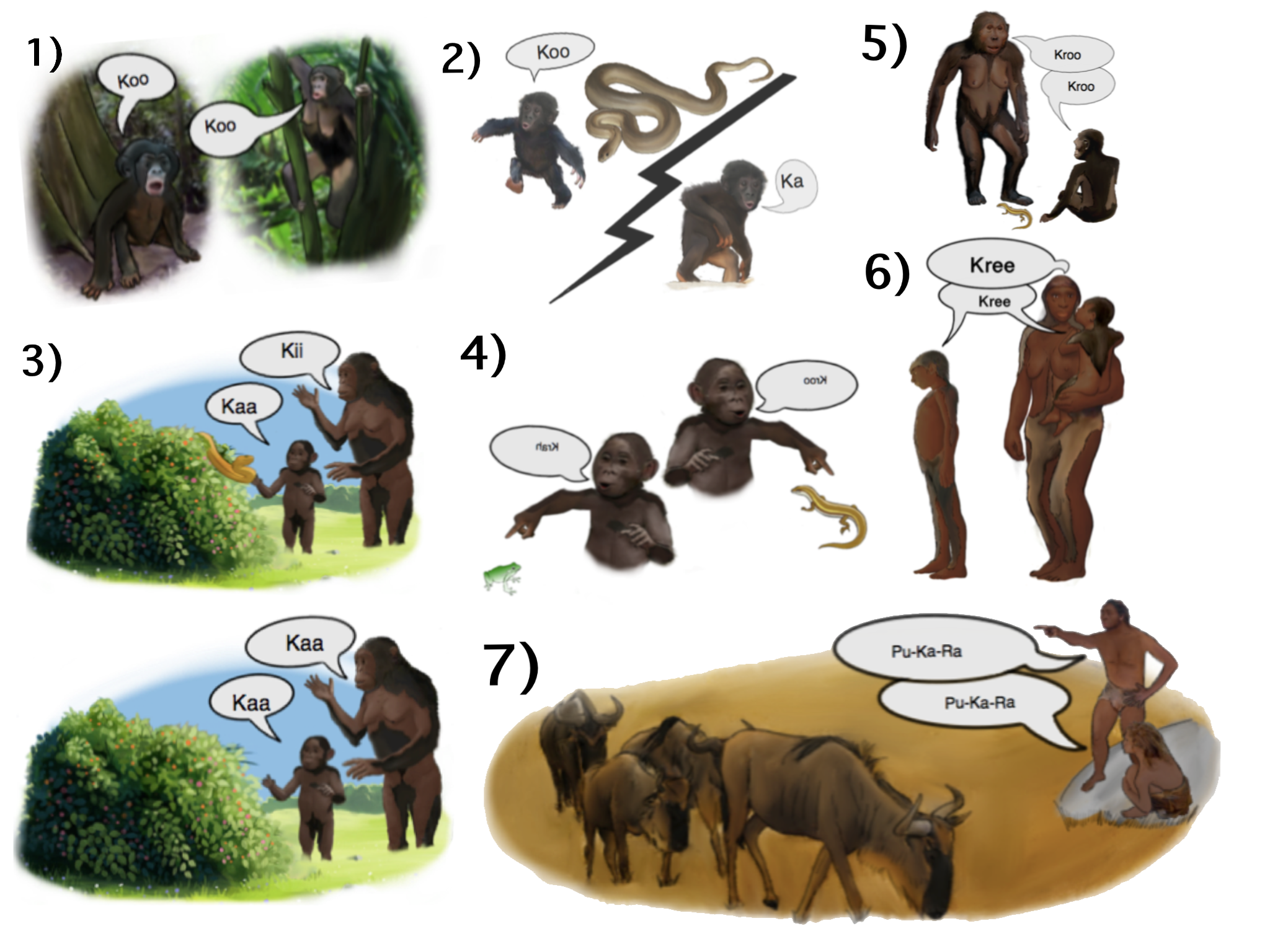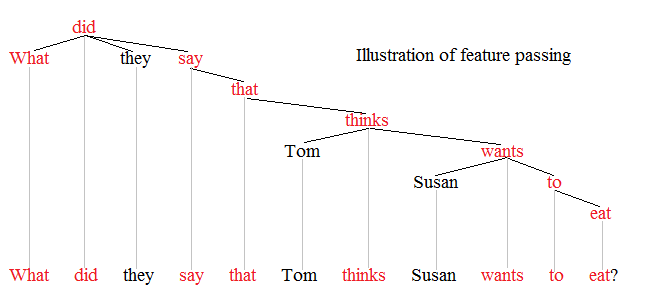|
Generative Semantics
Generative semantics was a research program in theoretical linguistics which held that syntactic structures are computed on the basis of meanings rather than the other way around. Generative semantics developed out of transformational generative grammar in the mid-1960s, but stood in opposition to it. The period in which the two research programs coexisted was marked by intense and often personal clashes now known as the linguistics wars. Its proponents included Haj Ross, Paul Postal, James McCawley, and George Lakoff, who dubbed themselves "The Four Horsemen of the Apocalypse". Generative semantics is no longer practiced under that name, though many of its central ideas have blossomed in the cognitive linguistics tradition. It is also regarded as a key part of the intellectual heritage of head-driven phrase structure grammar (HPSG) and construction grammar, and some of its insights live on in mainstream generative grammar. Pieter Seuren has developed a semantic syntax wh ... [...More Info...] [...Related Items...] OR: [Wikipedia] [Google] [Baidu] |
Formal Semantics (natural Language)
Formal semantics is the study of grammatical meaning in natural languages using formal tools from logic and theoretical computer science. It is an interdisciplinary field, sometimes regarded as a subfield of both linguistics and philosophy of language. It provides accounts of what linguistic expressions mean and how their meanings are composed from the meanings of their parts. The enterprise of formal semantics can be thought of as that of reverse-engineering the semantic components of natural languages' grammars. Overview Formal semantics studies the denotations of natural language expressions. High-level concerns include compositionality, reference, and the nature of meaning. Key topic areas include scope, modality, binding, tense, and aspect. Semantics is distinct from pragmatics, which encompasses aspects of meaning which arise from interaction and communicative intent. Formal semantics is an interdisciplinary field, often viewed as a subfield of both linguistics and ... [...More Info...] [...Related Items...] OR: [Wikipedia] [Google] [Baidu] |
Generative Grammar
Generative grammar, or generativism , is a linguistic theory that regards linguistics as the study of a hypothesised innate grammatical structure. It is a biological or biologistic modification of earlier structuralist theories of linguistics, deriving ultimately from glossematics. Generative grammar considers grammar as a system of rules that generates exactly those combinations of words that form grammatical sentences in a given language. It is a system of explicit rules that may apply repeatedly to generate an indefinite number of sentences which can be as long as one wants them to be. The difference from structural and functional models is that the object is base-generated within the verb phrase in generative grammar. This purportedly cognitive structure is thought of as being a part of a universal grammar, a syntactic structure which is caused by a genetic mutation in humans. Generativists have created numerous theories to make the NP VP (NP) analysis work in natur ... [...More Info...] [...Related Items...] OR: [Wikipedia] [Google] [Baidu] |
Aspects Of The Theory Of Syntax
Aspect or Aspects may refer to: Entertainment * '' Aspect magazine'', a biannual DVD magazine showcasing new media art * Aspect Co., a Japanese video game company * Aspects (band) Aspects are an English hip hop group from Bristol, England; the outfit's core members being emcees El Eye, Mantis and Bubber Loui. Career The band formed in 1996 and were once part of a larger collective of artists known as FSH (Fantastic Sup ..., a hip hop group from Bristol, England * ''Aspects'' (Benny Carter album), a 1959 album by Benny Carter * ''Aspects'' (The Eleventh House album), a 1976 album by Larry Coryell and The Eleventh House * ''Aspects'' (novel), a posthumous novel by John M. Ford Persons * Alain Aspect, a French physicist and Nobel prize recipient (1947–) Other * Aspect (computer programming), a feature linked to many parts of a program but not necessarily the primary function of the program * Aspect (geography), the compass direction that a slope faces * Aspect (religio ... [...More Info...] [...Related Items...] OR: [Wikipedia] [Google] [Baidu] |
Syntactic Structures
''Syntactic Structures'' is an influential work in linguistics by American linguist Noam Chomsky, originally published in 1957. It is an elaboration of his teacher Zellig Harris's model of transformational generative grammar. A short monograph of about a hundred pages, Chomsky's presentation is recognized as one of the most significant studies of the 20th century. It contains the now-famous sentence " Colorless green ideas sleep furiously", which Chomsky offered as an example of a grammatically correct sentence that has no discernible meaning. Thus, Chomsky argued for the independence of syntax (the study of sentence structures) from semantics (the study of meaning).From :"...such semantic notions as reference, significance, and synonymity played no role in the discussion." Based on lecture notes he had prepared for his students at the Massachusetts Institute of Technology, Chomsky's first book presented contemporary developments in early generative grammar. The approach to sy ... [...More Info...] [...Related Items...] OR: [Wikipedia] [Google] [Baidu] |
Michael K
''Life & Times of Michael K'' is a 1983 novel by South African-born writer J. M. Coetzee. The novel won the Booker Prize for 1983. The novel is a story of a man named Michael K, who makes an arduous journey from Cape Town to his mother's rural birthplace, amid a fictitious civil war during the apartheid era, in the 1970-80s. Plot summary The novel is split into three parts. The novel begins with Michael K, a poor man with a cleft lip who has spent his childhood in institutions and works as a gardener in Cape Town. Michael tends to his mother who works as a domestic servant to a wealthy family. The country descends into civil war and martial law is imposed, and Michael's mother becomes very sick. Michael decides to quit his job and escape the city to return his mother to her birthplace, which she says was Prince Albert. Michael finds himself unable to obtain the proper permits for travel out of the city so he builds a shoddy rickshaw to carry his mother, and they go on their ... [...More Info...] [...Related Items...] OR: [Wikipedia] [Google] [Baidu] |
Minimal Recursion Semantics
Minimal recursion semantics (MRS) is a framework for computational semantics. It can be implemented in typed feature structure formalisms such as head-driven phrase structure grammar and lexical functional grammar. It is suitable for computational language parsing and natural language generation.Copestake, A., Flickinger, D. P., Sag, I. A., & Pollard, C. (2005)Minimal Recursion Semantics. An introduction In Research on Language and Computation. 3:281–332 MRS enables a simple formulation of the grammatical constraints on lexical and phrasal semantics, including the principles of semantic composition. This technique is used in machine translation. Early pioneers of MRS include Ann Copestake, Dan Flickinger, Carl Pollard, and Ivan Sag. See also * DELPH-IN Deep Linguistic Processing with HPSG - INitiative (DELPH-IN) is a collaboration where computational linguists worldwide develop natural language processing tools for deep linguistic processing of human language. The goal of D ... [...More Info...] [...Related Items...] OR: [Wikipedia] [Google] [Baidu] |
Origin Of Speech
The origin of speech refers to the general problem of the origin of language in the context of the physiological development of the human speech organs such as the tongue, lips, and vocal organs used to produce phonological units in all spoken languages. The origin of speech has been studied through many fields and topics such as: evolution, anatomy, and history of linguistics. The origin of speech is related to the more general problem of the origin of language, the evolution of distinctively human speech capacities has become a distinct and in many ways separate area of scientific research. The topic is a separate one because language is not necessarily spoken: it can equally be written or signed. Speech is in this sense optional, although it is the default modality for language. Background There are many different theories and ideas that give us a theoretical framework of how speech in humans originated. Multiple of these theories play on the idea of how humans ... [...More Info...] [...Related Items...] OR: [Wikipedia] [Google] [Baidu] |
Origin Of Language
The origin of language (spoken and signed, as well as language-related technological systems such as writing), its relationship with human evolution, and its consequences have been subjects of study for centuries. Scholars wishing to study the origins of language must draw inferences from evidence such as the fossil record, archaeological evidence, contemporary language diversity, studies of language acquisition, and comparisons between human language and systems of communication existing among animals (particularly other primates). Many argue that the origins of language probably relate closely to the origins of modern human behavior, but there is little agreement about the facts and implications of this connection. The shortage of direct, empirical evidence has caused many scholars to regard the entire topic as unsuitable for serious study; in 1866, the Linguistic Society of Paris banned any existing or future debates on the subject, a prohibition which remained influ ... [...More Info...] [...Related Items...] OR: [Wikipedia] [Google] [Baidu] |
Generative Linguistics
Generative grammar, or generativism , is a linguistic theory that regards linguistics as the study of a hypothesised innate grammatical structure. It is a biological or biologistic modification of earlier structuralist theories of linguistics, deriving ultimately from glossematics. Generative grammar considers grammar as a system of rules that generates exactly those combinations of words that form grammatical sentences in a given language. It is a system of explicit rules that may apply repeatedly to generate an indefinite number of sentences which can be as long as one wants them to be. The difference from structural and functional models is that the object is base-generated within the verb phrase in generative grammar. This purportedly cognitive structure is thought of as being a part of a universal grammar, a syntactic structure which is caused by a genetic mutation in humans. Generativists have created numerous theories to make the NP VP (NP) analysis work in natural ... [...More Info...] [...Related Items...] OR: [Wikipedia] [Google] [Baidu] |
Cognitive Revolution
The cognitive revolution was an intellectual movement that began in the 1950s as an interdisciplinary study of the mind and its processes. It later became known collectively as cognitive science. The relevant areas of interchange were between the fields of psychology, linguistics, computer science, anthropology, neuroscience, and philosophy. The approaches used were developed within the then-nascent fields of artificial intelligence, computer science, and neuroscience. In the 1960s, the Harvard Center for Cognitive Studies and the Center for Human Information Processing at the University of California San Diego were influential in developing the academic study of cognitive science. By the early 1970s, the cognitive movement had surpassed behaviorism as a psychological paradigm. Furthermore, by the early 1980s the cognitive approach had become the dominant line of research inquiry across most branches in the field of psychology. A key goal of early cognitive psychology was to appl ... [...More Info...] [...Related Items...] OR: [Wikipedia] [Google] [Baidu] |
Trace (linguistics)
Syntactic movement is the means by which some theories of syntax address discontinuities. Movement was first postulated by structuralist linguists who expressed it in terms of ''discontinuous constituents'' or ''displacement''. Some constituents appear to have been displaced from the position in which they receive important features of interpretation. The concept of movement is controversial and is associated with so-called ''transformational'' or ''derivational'' theories of syntax (such as transformational grammar, government and binding theory, minimalist program). Representational theories (such as head-driven phrase structure grammar, lexical functional grammar, construction grammar, and most dependency grammars), in contrast, reject the notion of movement and often instead address discontinuities with other mechanisms including graph reentrancies, feature passing, and type shifters. Illustration Movement is the traditional means of explaining discontinuities such as wh ... [...More Info...] [...Related Items...] OR: [Wikipedia] [Google] [Baidu] |
Passive Voice
A passive voice construction is a grammatical voice construction that is found in many languages. In a clause with passive voice, the grammatical subject expresses the ''theme'' or '' patient'' of the main verb – that is, the person or thing that undergoes the action or has its state changed. This contrasts with active voice, in which the subject has the agent role. For example, in the passive sentence "The tree was pulled down", the subject (''the tree'') denotes the patient rather than the agent of the action. In contrast, the sentences "Someone pulled down the tree" and "The tree is down" are active sentences. Typically, in passive clauses, what is usually expressed by the object (or sometimes another argument) of the verb is now expressed by the subject, while what is usually expressed by the subject is either omitted or is indicated by some adjunct of the clause. Thus, turning an active sense of a verb into a passive sense is a valence-decreasing process ("detransit ... [...More Info...] [...Related Items...] OR: [Wikipedia] [Google] [Baidu] |


.jpg)


